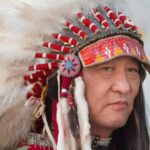This post includes more than 100 famous quotes about language. These quotes also connect to other TOK themes, such as politics and knowledge, technology, and Indigenous societies. They show how language works in various cultures and knowledge settings.
Language and Thought
- “The limits of my language mean the limits of my world.” — Ludwig Wittgenstein
- “We shape our tools and thereafter our tools shape us.” — Marshall McLuhan
- “Language is the dress of thought.” — Samuel Johnson
- “The great enemy of clear language is insincerity.” — George Orwell
- “Language is not merely a tool for expressing thought; it is a tool for shaping thought.” — Steven Pinker
- “Without language, thought is a vague, uncharted nebula.” — Ferdinand de Saussure
- “Words are, of course, the most powerful drug used by mankind.” — Rudyard Kipling
- “Language is the house of Being.” — Martin Heidegger
- “Language is the means of getting an idea from my brain into yours without surgery.” — Mark Amidon
- “Language is the blood of the soul into which thoughts run and out of which they grow.” — Oliver Wendell Holmes Sr.
Language and Emotion
- “Words are a pretext. It is the inner bond that draws one person to another, not words.” — Rumi
- “Feelings are not supposed to be logical. Dangerous is the man who has rationalized his emotions.” — David Borenstein
- “One does not inhabit a country; one inhabits a language. That is our country, our fatherland—and no other.” — Emil Cioran
- “The language of friendship is not words but meanings.” — Henry David Thoreau
- “Language exerts hidden power, like a moon on the tides.” — Rita Mae Brown
- “Words are but symbols for the relations of things to one another and to us; nowhere do they touch upon absolute truth.” — Friedrich Nietzsche
- “To handle a language skillfully is to practice a kind of evocative sorcery.” — Charles Baudelaire
- “A different language is a different vision of life.” — Federico Fellini
- “Language is wine upon the lips.” — Virginia Woolf
- “Tears are the silent language of grief.” — Voltaire
Language, Culture, and Identity
- “To have another language is to possess a second soul.” — Charlemagne
- “Language is the road map of a culture. It tells you where its people come from and where they are going.” — Rita Mae Brown
- “A special kind of beauty exists which is born in language, of language, and for language.” — Gaston Bachelard
- “A man’s language is his reality.” — Samuel Beckett
- “Each language offers a unique world view.” — Frank Smith
- “The disappearance of a language is the disappearance of a worldview.” — Ken Hale
- “Language is not a genetic gift, it is a social gift.” — Noam Chomsky
- “You can never understand one language until you understand at least two.” — Geoffrey Willans
- “Preserving a language means preserving a culture and a way of thinking.” — David Crystal
- “Our language is the reflection of ourselves.” — Cesar Chavez

Language and Knowledge Transmission
- “All meanings, we know, depend on the key of interpretation.” — George Eliot
- “Language is the archive of history.” — Ralph Waldo Emerson
- “Writing is the painting of the voice.” — Voltaire
- “The language of truth is simple.” — Lucius Annaeus Seneca
- “The advancement and diffusion of knowledge depends on language.” — Daniel Webster
- “The more words you know, the more clearly and powerfully you will think… and the more ideas you will invite into your mind.” — Wilfred Funk
- “Language shapes the way we think, and determines what we can think about.” — Benjamin Lee Whorf
- “Speech is civilization itself.” — Thomas Mann
- “The knowledge of languages is the doorway to wisdom.” — Roger Bacon
- “If you talk to a man in a language he understands, that goes to his head. If you talk to him in his language, that goes to his heart.” — Nelson Mandela
Language, Power, and Politics
- “Political language… is designed to make lies sound truthful and murder respectable, and to give an appearance of solidity to pure wind.” — George Orwell (from a different quote than previously used)
- “Language is legislation, speech is its code. We do not see the power which it has; we forget that we speak.” — Roland Barthes
- “When I use a word, it means just what I choose it to mean—neither more nor less.” — *Lewis Carroll, Through the Looking-Glass
- “He who controls language controls the masses.” — Saul Alinsky
- “The language of the law must not be foreign to the ears of those who are to obey it.” — Learned Hand
- “Language is a weapon of politicians, but language can be a weapon in others’ hands, too.” — Angela Carter
- “You can sway a thousand men by appealing to their prejudices quicker than you can convince one man by logic.” — Robert A. Heinlein
- “The smartest people are the ones who can simplify language.” — Naval Ravikant
- “Language is political. That’s why you and I, my brother and sister, that’s why we speak.” — June Jordan
- “The people who control the vocabulary control the power.” — Dan Simmons
Language, Learning, and Education
- “Change your language and you change your thoughts.” — Karl Albrecht
- “Language is the light of the mind.” — John Stuart Mill
- “The art of communication is the language of leadership.” — James Humes
- “Learning another language is not only learning different words for the same things but learning another way to think about things.” — Flora Lewis
- “A man who does not know foreign languages is ignorant of his own.” — Johann Wolfgang von Goethe
- “Language is the means by which we make sense of the world.” — Neil Postman
- “Language is the principal means whereby we conduct our social lives.” — Michael Halliday
- “To learn a language is to have one more window from which to look at the world.” — Chinese proverb
- “Language acquisition does not require extensive use of conscious grammatical rules.” — Stephen Krashen
- “One language sets you in a corridor for life. Two languages open every door along the way.” — Frank Smith
Language and Reality
- “Language disguises the thought; so that from the external form of the clothing it is impossible to infer the form of the thought beneath it.” — Ludwig Wittgenstein, Tractatus Logico-Philosophicus
- “We use language not so much to convey factual information as to affect one another.” — Robert B. Kaplan
- “Language is the house of reality.” — Donald Davidson
- “Our perception of the world is organized through language.” — Lev Vygotsky
- “Language is not only a means of communication; it is also a means of making sense of the world.” — Guy Cook
- “Reality is broken by language.” — Emil Cioran
- “The world is made up of stories, not atoms.” — Muriel Rukeyser
- “Language creates reality. Words have power. Speak always to create joy.” — Deepak Chopra
- “There is no such thing as reality, only perceptions.” — Gustave Flaubert
- “Language is fossil poetry.” — Ralph Waldo Emerson
Language and Interpretation
- “The meaning of a word is its use in the language.” — Ludwig Wittgenstein, Philosophical Investigations
- “Interpretation is the revenge of the intellect upon art.” — Susan Sontag
- “There is no such thing as a perfect translation.” — Umberto Eco
- “Meanings are not determined by situations, but we determine situations by the meanings we give to them.” — Alfred Korzybski
- “Words do not express thoughts very well. They always become a little different immediately after they are expressed, a little distorted, a little foolish.” — Hermann Hesse, Siddhartha
- “The problem with communication is the illusion that it has occurred.” — George Bernard Shaw
- “Language is a skin: I rub my language against the other.” — Roland Barthes
- “Language is a virus from outer space.” — William S. Burroughs
- “All translation is interpretation.” — José Ortega y Gasset
- “Words are slippery. Like fish, they slip through your fingers.” — Zadie Smith
Language and Creativity
- “The difference between the right word and the almost right word is the difference between lightning and a lightning bug.” — Mark Twain
- “Poetry is what gets lost in translation.” — Robert Frost
- “The limits of my language are the limits of my creativity.” — Paul Valéry
- “Language is a form of human reason, which has its internal logic of which man knows nothing.” — Claude Lévi-Strauss
- “The writer is by nature a dreamer—a conscious dreamer.” — Carson McCullers
- “A poet is, before anything else, a person who is passionately in love with language.” — W.H. Auden
- “Words are the most inexhaustible source of magic we have.” — J.K. Rowling, Harry Potter and the Deathly Hallows
- “All language is a set of symbols whose use among its speakers assumes a share past.” — Benedict Anderson
- “The man who does not read has no advantage over the man who cannot read.” — Mark Twain
- “Literature is the most agreeable way of ignoring life.” — Fernando Pessoa

Need help with your IB TOK essay?
From research and analysis to structuring and editing, our skilled mentors will be by your side, helping you write an exceptional TOK essay that meets the word count and stringent IB criteria.
Language and Truth
- “Language can be a way of hiding the truth.” — Friedrich Nietzsche
- “All that is necessary for the triumph of evil is that good men do nothing. And part of doing nothing is failing to speak the truth.” — Edward Burke
- “All speech, written or spoken, is a dead language, until it finds a willing and prepared hearer.” — Robert Louis Stevenson
- “In language, truth is always in danger of becoming cliché.” — Terry Eagleton
- “A lie can travel halfway around the world while the truth is putting on its shoes.” — Often attributed to Mark Twain
- “Language is a cracked kettle on which we beat out tunes for bears to dance to, while all the time we long to move the stars to pity.” — Gustave Flaubert
- “The truth does not change according to our ability to stomach it.” — Flannery O’Connor
- “The single biggest problem in communication is the illusion that it has taken place.” — George Bernard Shaw (Different from previous)
- “Words are often more powerful than truth.” — Libba Bray
- “Sometimes people use thought to not participate in life.” — Stephen Chbosky, The Perks of Being a Wallflower
Language and Technology
- “The medium is the message.” — Marshall McLuhan
- “New technology is not good or evil in and of itself. It’s all about how people choose to use it.” — David Wong (Jason Pargin)
- “Technology made large populations possible; large populations now make technology indispensable.” — Joseph Wood Krutch
- “The internet is the first thing that humanity has built that humanity doesn’t understand.” — Eric Schmidt
- “Language is the most massive and inclusive art we know, a mountainous and anonymous work of unconscious generations.” — Edward Sapir
- “Computers are useless. They can only give you answers.” — Pablo Picasso
- “Technology is anything that wasn’t around when you were born.” — Alan Kay
- “As the means of communication evolve, so too must our understanding of what is said and how it’s interpreted.” — Sherry Turkle
- “The more elaborate our means of communication, the less we communicate.” — Joseph Priestley
- “We are more connected than ever, but also more divided.” — Barack Obama
How to Use These Quotes in Your TOK Essay or Exhibition?
Using quotes correctly in a TOK essay or exhibition can help your case, show that you can think critically, and show that you understand the course themes. But it’s not enough to just add a quote; you need to use it well to back up your ideas and connect it to the central questions of TOK.
Pick quotes that directly back up your point of view.
Pick a quote that means something, not just because it sounds good. Pick the ones that connect to your knowledge question, central claim, or argument. A good quote should be useful, not just pretty.
Write your own words to describe the quote.
After you quote someone, give a summary. What does it mean? Why does it matter? You don’t have to do a literary study, but you should explain how the quote fits in with your thoughts.
Highlight various points of view by using quotes.
TOK likes it when people from different fields and countries talk about their thoughts. You could compare a philosopher’s quote to one from a scientist, artist, or political leader. This shows that you are open to different points of view.
Be clear and to the point.
Do not use too many quotes in your essay or TOK exhibition. For most sections, one or two well-chosen quotes are enough. The attention should stay on your research, not other people’s words.
If it’s not common knowledge, give credit to the source.
It’s enough to name the speaker and the piece (for example, “As George Orwell once said in Politics and the English Language…”). To be academically honest, you should include simple reference information in your writing.
So, you can make your TOK work more interesting and unique by using famous quotes about language. Also, feel free to contact our TOK and EE writers if you need help.
Luke MacQuoid
Luke MacQuoid has extensive experience teaching English as a foreign language in Japan, having worked with students of all ages for over 12 years. Currently, he is teaching at the tertiary level. Luke holds a BA from the University of Sussex and an MA in TESOL from Lancaster University, both located in England. As well to his work as an IB Examiner and Master Tutor, Luke also enjoys sharing his experiences and insights with others through writing articles for various websites, including extendedessaywriters.com blog
- Transition Words For An Argumentative Essayby Narmeen
- Figurative Language Examples in Literature – IB English Extended Essayby Narmeen
- Math Extended Essay Topicsby Luke MacQuoid
- 100+ Famous Quotes on Languageby Luke MacQuoid
- 100+ Famous Quotes on Indigenous Societiesby Luke MacQuoid
- 100+ Famous Quotes on Religionby Luke MacQuoid



